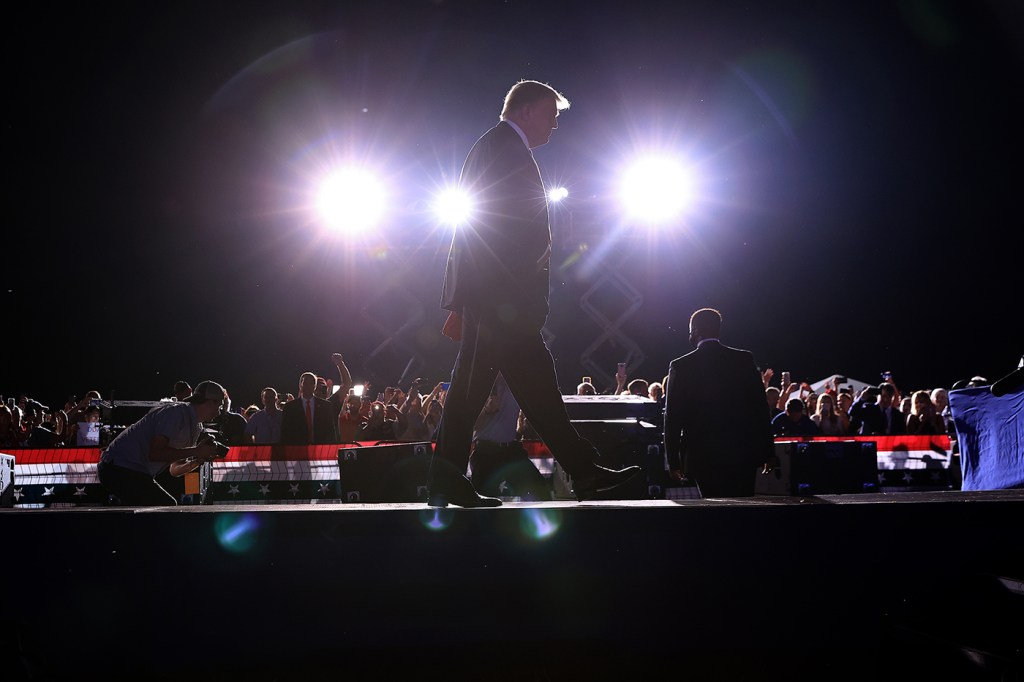Do Facebook ads win elections? It’s complicated.

Did Facebook ads help turn the 2016 U.S. presidential election, as many have reported anecdotally? Katherine Haenschen, an assistant professor of communication studies and political science at Northeastern, says the answer is complicated.

“To say Donald Trump won because of Facebook ads is painfully reductive and overly simplistic,” says Haenschen, whose new research shows that the platform’s microtargeted ads can, in certain instances, influence elections. “You can’t just run $1 million in Facebook ads and think that voter turnout is going to magically skyrocket. It doesn’t work that way.”
Facebook ad campaigns offer political clients the ability to target and track specific audiences, in much the same way as corporate advertisers do. In the run-up to the last presidential election, political advertisers spent upwards of $264 million on Facebook ads in the third quarter of 2020—accounting for 3% of the platform’s estimated U.S. revenue in that span.
Haenschen’s study focused on Texas voters during the 2018 U.S. midterm elections. The voters were targeted with Facebook ads on four issues: abortion rights, health care, immigration, and gun control. Only one of those issues appeared to elicit an increase in voter turnout—and only then in congressional districts that were competitive.
Haenschen spoke with News@Northeastern about the types of elections and issues that can be influenced by Facebook ads. Her comments have been edited for brevity and clarity.
Why are the findings important?
It’s one of the first studies to show that Facebook ads can have an impact on voter turnout. Most of the research on Facebook ads hasn’t found statistically significant effects. This study did.
When the right message is applied to the receptive audience, in areas with “high-salience” elections—where there is greater interest and excitement in the election—then the ads work.
How did you conduct the study?
We targeted 850,000 people in Texas in 2018. Some people were in competitive congressional districts; other people were in uncompetitive areas where everything on their ballot was pretty much a foregone conclusion.
I did this study in partnership with Progress Texas, a [nonprofit] progressive messaging organization—they’ve been around for a long time. They were already engaging people on issues of abortion rights, health care, immigration, and gun control.
They wanted to run ads where people were assigned to only one of those messages. We had different formats of ads that ran for seven weeks with links to blog posts, podcasts, videos, all sorts of stuff. But you only saw the messages on the one issue that you were assigned to.
We found that the only message that had an effect was abortion rights—and that the effects were concentrated within competitive congressional districts. And, statistically, that they were only effective on women.
What is your interest in this work?
I spent 10 years working on political campaigns before I finished my doctorate. A lot of my research is motivated by taking things that political professionals do and testing them in the lab or in a randomized controlled trial to see what works, what doesn’t work, and what deeper insights can we gather?
For this study, the group approached me and said they were interested in determining if the work they were already doing was having an effect. They wanted to know, “If we change people’s Facebook feeds to have more political issue-oriented contact, will that change turnout?” And the answer is a resounding … sometimes.
What is the bottom line?
In the aggregate, Facebook ads don’t work. This study ran 2.5 million impressions. And overall, across everybody in the study, there was no effect on turnout.
But the Facebook ads did increase turnout in competitive districts, but only with one message. Why that message?
Well, Texas has been a hostile state to abortion rights. So this message clearly resonated with voters in a way that the other messages didn’t.
The challenge for other groups that are looking to do issue-oriented ad campaigns is to figure out what that [provocative] issue is.
For media inquiries, please contact Marirose Sartoretto at m.sartoretto@northeastern.edu or 617-373-5718.






